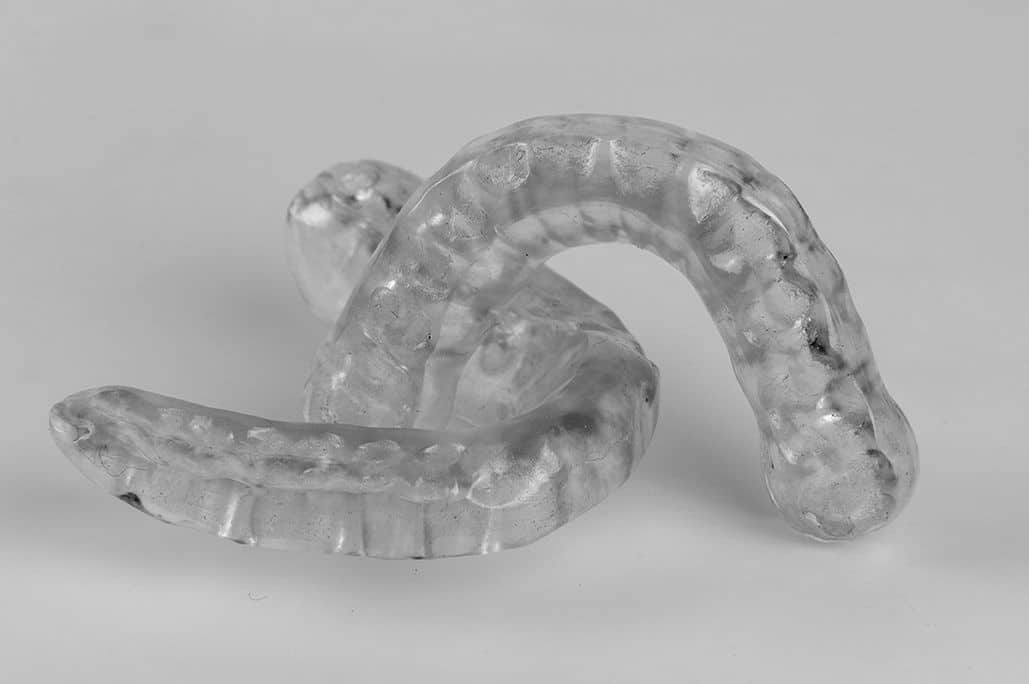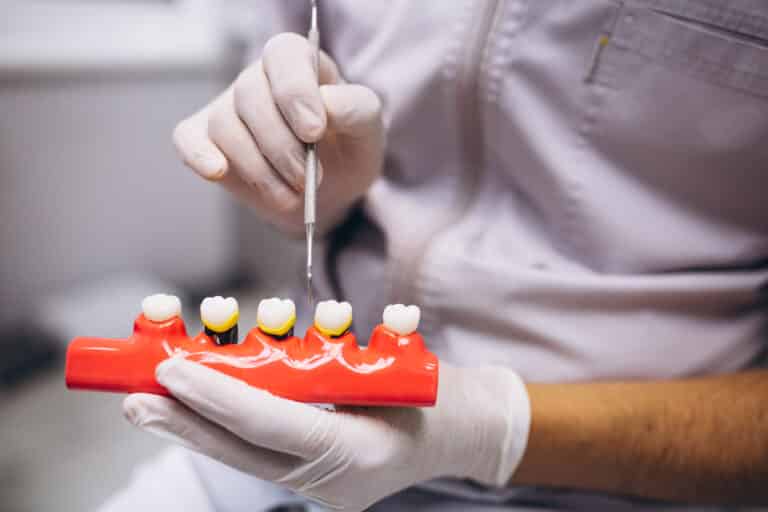The temporomandibular joint (TMJ) connects the jaw to the skull. The TMJ controls the jaw’s movement, allowing it to open and close. TMJ disorder refers to problems that affect the TMJ or surrounding tissues, muscles, and ligaments. TMJ disorder is caused by issues such as jaw misalignment, teeth grinding, oral injury, and arthritis. TMJ disorder limits jaw movement and causes symptoms like pain, headaches, and ringing in the ears.
The dentists at Astoria Dental Group, who serve patients from Queens, NY, Long Island, and NYC, offer treatment for TMJ disorder. Our dentists often treat TMJ disorder with an oral appliance. An oral appliance holds the jaw in its intended position and prevents some of the poor oral habits that contribute to TMJ disorder.
Treating TMD With an Oral Splint
TMJ disorder treatment frequently involves the use of an oral splint. An oral splint is a custom appliance designed to hold the mouth and jaw in the proper position. An oral splint is recommended when TMJ disorder is caused by jaw misalignment. An oral splint is typically worn at night, while a person sleeps. In some cases, the use of an oral splint is temporary, while other patients require long-term use.
An oral splint aligns the mouth and jaw and provides support to reduce tension from the TMJ and surrounding muscles. An oral splint alone is often enough to alleviate TMJ disorder symptoms. For persistent symptoms, an oral splint may be used alongside other TMJ disorder treatment techniques.
Treating TMD With a Mouthguard
A custom mouthguard is similar to an oral splint but smaller. The primary purpose of a mouthguard is to create a barrier between the upper and lower teeth. The mouthguard prevents jaw clenching and teeth grinding. Like an oral splint, a mouthguard is worn while sleeping. A mouthguard alleviates TMJ disorder symptoms and prevents them from worsening.
A mouthguard may be a sufficient treatment for mild cases of TMJ disorder. More advanced cases of TMJ disorder may respond better to an oral splint or a mouthguard used in conjunction with other treatment techniques.
Which Treatment Is Right for Me?
Our dentists customize TMD treatment based on the patient’s unique needs. Considerations include the severity of TMJ disorder symptoms and the cause of the condition.
Oral splints tend to be better suited for cases of TMJ disorder caused by jaw misalignment, tooth loss, or other malocclusion problems. Oral splints are sturdier than a mouthguard, so they work well for patients with moderate to advanced TMJ symptoms.
Custom mouthguards are often appropriate for mild to moderate cases of TMJ disorder. They work particularly well for cases of TMJ related to bruxism (teeth grinding and clenching). Mouthguards fit comfortably and prevent grinding and clenching while a person sleeps to alleviate jaw tension.
Get In Touch
If you are suffering from oral pain, frequent headaches, limited jaw movement, or other symptoms of TMJ disorder, the dentists at Astoria Dental Group can create a personalized TMD treatment plan. To learn how oral appliances can restore oral comfort and improve oral functions, contact our dental practice online or call (718) 215-0510 at your earliest convenience.




